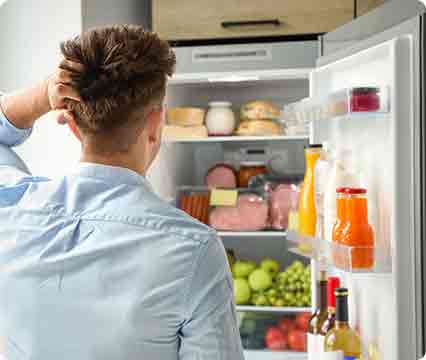A laboratory-based study of the priming effects of food cues and stress on hunger and food intake in individuals with obesity
This 2020 study aimed to analyze the effects of exposing individuals to stress and cues (food and neutral) on their food consumption, and determine if their responses differed by weight status. The 138 participants were exposed to the cues on 3 separate days (using an individualized script-driven imagery task), before being allowed to eat as many snacks (high and low calorie) as they desired after each cue exposure. While food cues were found to elicit significantly greater hunger than neutral and stress stimuli, no difference in cue-induced hunger between weight statuses were observed. Participants also consumed similar numbers in calories after each cue exposure, although a significantly greater proportion (average 81%) came from high-calorie foods in the obese subjects, compared to 63.5% in those in the normal weight category. Weight status did not influence energy contribution from high-calorie foods following the neutral cue, but after the stress cue in particular, 81.4% of what the obese individuals ate were high-calorie snacks, whereas this percentage was 70.2% for those with normal weight. It appears that food and stress cues induced obese participants to consume more high-calorie snack foods than normal weight individuals. [NPID: behavior, stress, food cues, snacks, snacking, obese, obesity]
Year: 2020
 Navigation
Navigation






